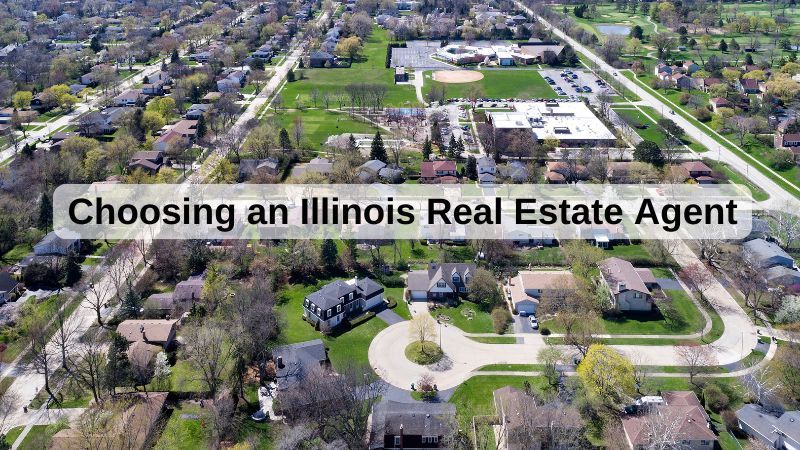Cost of Living in Elmhurst, IL

Elmhurst, IL, with its picturesque streets and vibrant community life, draws many who are looking to plant roots. But what does it cost to live here? Our guide breaks down every aspect of the cost of living in Elmhurst, ensuring you’re fully prepared for your move.
Understanding Elmhurst, IL: An Overview
Elmhurst, located in DuPage County, is home to approximately 46,000 residents. Known for its mix of suburban charm and urban convenience, Elmhurst offers a rich history and a robust local economy.
Geographical Location and Accessibility One of Elmhurst’s greatest assets is its location. Situated just 16 miles west of downtown Chicago, it offers easy access to the city via major highways and the Metra train service. This makes it an ideal place for those who work in Chicago but prefer suburban living.
Housing Costs in Elmhurst, IL
When considering the move to Elmhurst, one of the most significant factors to assess is the housing cost. Elmhurst provides a range of housing options from charming single-family homes to modern apartments, catering to various lifestyle needs.
Overview of Housing Market
Elmhurst is known for its well-maintained homes and attractive neighborhoods. This can vary significantly depending on the neighborhood, the age of the home, and the property's size.
Trends in Property Values The housing market in Elmhurst has seen steady growth over recent years. Realtor.com reports a year-over-year increase in property values of about 5%, reflecting the area's desirability and stable market.
Rental Market Analysis
Renting is another viable option in Elmhurst, especially for young professionals or those not yet ready to buy.
Popular Neighborhoods for Renters Some of the most sought-after neighborhoods for renters include Downtown Elmhurst, with its mix of urban amenities and suburban tranquility, and the College View area, known for its proximity to Elmhurst College and local schools.
Cost of Homeownership
Mortgage
Mortgage rates are a crucial part of homeownership costs. In Elmhurst, the average mortgage rate for a 30-year fixed mortgage is around 3.5%. However, individual rates may vary based on credit score and loan terms.
Home Insurance
Home insurance is another essential component of housing costs. This varies based on coverage specifics and the home’s value.
Utilities and Monthly Expenses
Understanding the recurring monthly expenses for utilities and other household services is crucial when evaluating the overall cost of living. Elmhurst, IL, offers a range of services, and knowing what to expect can help you budget more effectively.
Home Maintenance Costs
Regular home maintenance is an ongoing expense. Keeping track of these costs can help paint a clearer picture of your monthly financial commitments when living in Elmhurst.
Food and Groceries
Food expenses are a major part of the cost of living. In Elmhurst, you have various options for grocery shopping, dining out, and enjoying local cuisine, making it easier to manage your food budget while enjoying diverse meal choices.
Grocery Store
Elmhurst offers numerous grocery stores and supermarkets, including Jewel-Osco, Mariano’s, and Trader Joe’s.
Farmer’s Markets
Elmhurst hosts several farmer’s markets, providing fresh, locally-sourced produce. These markets are a great option for those who prefer organic and seasonal foods. Prices at farmer’s markets can sometimes be higher than supermarket prices, but they offer the advantage of fresher and often higher-quality products.
Dining Out in Elmhurst
Dining out in Elmhurst offers a range of options from casual eateries to fine dining. Popular Local Restaurants
Elmhurst Brewing Company: Known for its craft beers and pub fare.
- Francesca’s Amici: Offers classic Italian dishes in an upscale setting.
- Wildfire: A favorite for American cuisine and steaks.
Elmhurst offers a broad array of food options that can fit various budgets and culinary preferences, making it easy to enjoy good food while managing expenses.
Healthcare Costs
Healthcare expenses are another critical component of the overall cost of living. Elmhurst, IL, is home to many healthcare facilities that provide high-quality care, but it’s essential to understand the costs associated with medical services and insurance.
Availability of Medical Services
Elmhurst is served by Elmhurst Hospital, a highly-rated facility that offers a wide range of services including emergency care, specialized surgeries, and outpatient services. Additionally, there are numerous clinics and private practices that provide primary and specialized care.
- Elmhurst Hospital: General and specialized care.
- Edward-Elmhurst Health Center: Offers outpatient services.
- AMITA Health Medical Group: Various specialties available.
Education and Childcare Expenses
For families considering a move to Elmhurst, education and childcare are important factors. Elmhurst offers excellent options, but it’s crucial to understand the associated costs.
Schooling Options in Elmhurst
Public Schools
Elmhurst is served by Elmhurst Community Unit School District 205, which is known for its high-quality education. Public schools are funded through property taxes, so there is no tuition cost, but families may need to budget for school supplies, extracurricular activities, and transportation.
Notable Public Schools:
- York Community High School
- Sandburg Middle School
- Hawthorne Elementary School
Overall Affordability and Quality of Life
Considering factors such as housing, utilities, and other living costs, Elmhurst remains an attractive option for those seeking suburban charm with convenient access to urban amenities. Discover the Fly Guy Moving difference, where your move is our mission, and your satisfaction is our top priority.
Elmhurst may not be the least expensive option, but its blend of high-quality education, healthcare, and community amenities makes it competitive among both city and suburban living choices in the greater Chicago area.
Related Blog Posts



